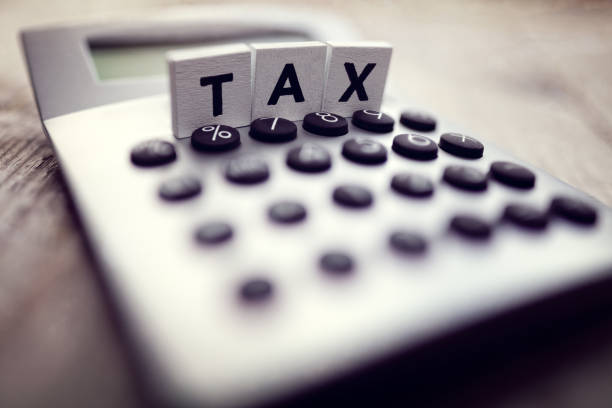Introduction
Joburg traders are at the centre of intense legal and social pressure as the City of Johannesburg races to meet a High Court deadline to verify, register and re-register hundreds of informal traders removed during recent CBD clean-up operations.
For weeks, enforcement teams confiscated stock, shut down stalls and pushed vendors off pavements in what many describe as an aggressive clampdown. The Gauteng High Court ruled that these removals were unlawful, ordering the City to process all listed traders within a strict two-week window.
This ruling has created both hope and uncertainty. Joburg traders want their trading rights restored, while the City insists it must still manage crowded pavements and enforce by-laws. The situation now stands as a major test of urban governance, fairness and economic survival.
Joburg traders caught in the fallout of sudden CBD evictions
The crisis began when enforcement units swept through inner-city blocks, removing traders they claimed were unregistered, undocumented or operating outside demarcated zones. Stalls were dismantled, stock confiscated, and vendors told to leave the streets.
Joburg traders say these removals were done with no warning and no individual notice. Many reported losing entire stock supplies that they had purchased with borrowed money or savings. Others described fleeing from officers to avoid arrest or harassment.
This clampdown echoed older crackdowns in the city, where informal trading has long been treated as a nuisance rather than a key part of the urban economy. For traders who rely on daily income to support families, the impact was immediate and severe.
What the City saw as enforcement, traders experienced as the destruction of their livelihood.
Joburg traders and the court’s firm warning to the City
The High Court stepped in after rights groups challenged the removals. The judge found that the City had violated legal procedures by failing to follow established by-laws and national legislation.
The court ordered the municipality to verify each of the listed Joburg traders, register them where appropriate, and allocate valid trading sites. Importantly, the order demanded transparency, fairness and strict compliance with the law.
This ruling does not stop the City from managing informal trade. Instead, it requires that such management happens within legal rules that respect the rights of those affected.
The City is now under pressure to show it can regulate without harming economic survival.
Joburg traders and the rush to complete verification
With a tight two-week deadline, the City opened verification centres where Joburg traders were asked to provide identification, old permits or proof of trading history.
While some vendors were quickly processed, many did not appear. Fear played a large role. Some traders, especially migrants and asylum seekers, worried about being detained if their documents were incomplete. Others believed officials would again remove them after registration.
This left the City scrambling to locate hundreds of names linked to the court list. Some traders had moved away. Others had lost contact networks due to sudden displacement.
The gap between those who registered and those still missing raised concerns about whether the deadline could be fully met.
Joburg traders and the tension between legality and daily survival
This dispute reveals a fundamental clash between regulation and livelihood.
The City says it must apply by-laws to reduce congestion, organise pavements and tackle illegal activity. But Joburg traders argue that by-laws should not be used to push out small businesses that support households and communities.
For many traders, losing a stall does not mean losing a side job. It means losing their only source of income. Without trading rights, they cannot pay rent, buy food, or support children in school.
The court recognised that informal trading is tied to dignity and economic survival. It reminded the City that the law exists not to punish the poor but to protect them.
Joburg traders, the informal economy and the future of the CBD
Informal trading is an essential part of Johannesburg’s economy. Pavement markets offer affordable goods, create jobs and bring life to the inner city. In areas with high unemployment, they serve as safety nets that allow families to stay afloat.
Yet the City also faces real challenges: crowding, disorder, counterfeit products and safety risks. These concerns often push officials toward heavy enforcement, especially during high-profile city events or regeneration projects.
The court’s ruling forces the City to design a more balanced model. Joburg traders need space, support and clear rules. The City needs structure and compliance.
If the verification process is handled well, it could become a blueprint for fair urban management. If mishandled, it may deepen mistrust and spark more conflict.
Joburg traders and the politics behind the clean-up
Political pressure shapes much of the tension. Some city leaders present themselves as champions of order, arguing that unregulated trading harms businesses, blocks walkways and hampers investment.
Opposition parties and civil groups counter that the city targets the vulnerable instead of fixing deeper governance failures. They say crackdowns often intensify just before major political events, suggesting that image management sometimes outweighs human needs.
Meanwhile, residents are divided. Some call for calmer, cleaner streets. Others support Joburg traders because they offer affordable goods and form part of the cultural fabric of the CBD.
This conflict shows how informal trade is not only an economic issue but also a political one.
Joburg traders looking ahead after the court deadline
As the verification deadline closes, Joburg traders wait to see what the next phase holds.
Some have already been allocated stalls and returned to work. Others remain in limbo, unsure whether their applications will be accepted or whether spaces will run out. Traders who did not appear may face renewed enforcement, or they may be given another chance depending on future negotiations.
For the City, the test is credibility. Officials must show they can regulate fairly, communicate clearly, and treat traders as partners in urban life rather than obstacles.
For traders, the priority is simple: to work without fear and rebuild what was lost. Whether this moment becomes a true turning point depends on what happens next on the ground.
FAQs
Why did the court back the Joburg traders?
The court backed Joburg traders because their removal violated legal procedures and threatened their ability to earn a living, which is protected under national law.
How many Joburg traders must be verified?
The ruling covers more than 500 Joburg traders, all of whom must be verified and considered for legal trading spaces as ordered by the court.
Does the ruling prevent regulation of Joburg traders?
No. The City may still regulate Joburg traders, but it must do so lawfully, transparently and without undermining their rights or livelihoods.
Conclusion
The dispute involving Joburg traders exposes the deep tension between urban order and economic survival. The High Court’s intervention forces the City to move away from disruptive clean-up tactics and toward a rights-based model of regulation.
Whether the City delivers fair verification, secure trading spaces and improved communication will determine if this ruling becomes a genuine shift in governance—or just another moment in a long cycle of conflict. The stakes are high not only for traders, but for the future character and fairness of Johannesburg’s inner city.




